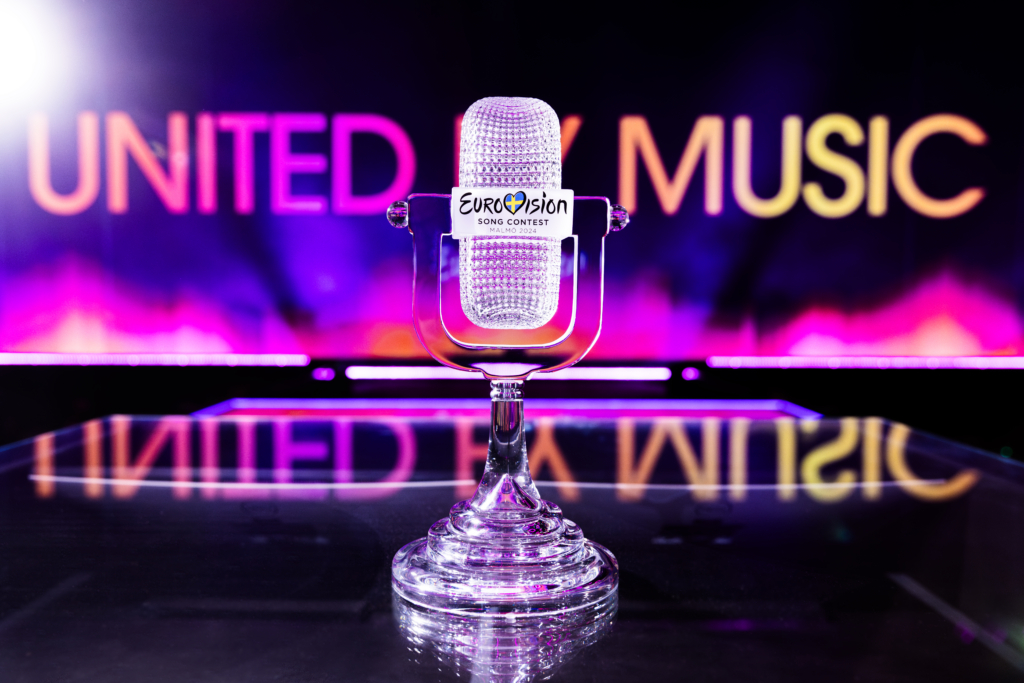An event as big and marketed as The Eurovision Song Contest (ESC), in some way, affects everyone. You know that it is happening, whether you actually sit down to watch it or not. The Eurovision 2024 being held in Malmö possibly encouraged more reflection about the contest for students at Lund University.
European students at LU, while away from their home country, could come together to celebrate Eurovision and feel a sense of belonging. The ESC may have alleviated the homesickness of some of the students by expanding their sense of home to the entire continent. Is it possible that some sense of unity lingers even long after the end of the contest?

Photo: Neomi Algani
In a way, Eurovision goes beyond representing individual countries of Europe (and some outside of the borders) to instead paint a picture of the whole continent. Does the competition have an impact on what it means to be a European as well?
– Being European makes me interested in Eurovision but the fact that I watch it and that it exists does not make me any more European. Especially that everyone can join the ESC, says Ola Brania, a Master’s student in Media and Communication.
This rather neutral stance on the ESC was reflected by all of the students interviewed. Nonetheless, some students found watching the contest significant in other ways: from understanding the cultural diversity of Europe to being able to keep up with friends.
While some of the interviewed students see Eurovision as a space to present the multicultural aspect of Europe, the idea that there is a single version of Europe was more divisive.
– I don’t think there is such a thing as one European culture. There are many different cultures within Europe. I wouldn’t say that Eurovision contributes to upholding the local culture of different nations, says Tim Pröpster, a Master’s student in Social Studies of Gender.

Photo: Neomi Algani
With its explicit (and often reiterated) non-political identity, the ESC rarely makes any active moves towards some kind of social impact. A lack of action that could be seen to work in opposition to the ideas it promotes. Despite the aims of the contest, the students we talked to could not agree that the ESC portrays Europe in a positive way.
– To the people outside of Europe, ESC gives somewhat an idea but it also creates certain stereotypes. I think it is for Eurovision to fight these stereotypes and make everyone equal. The idea behind Eurovision is to unite but in fact it is just bunch of political bullshit, says Mariam Petrosian, a Bachelor’s student in Mathematics.
One student feels that while the ESC may adequately portray the reality of some European countries, it glosses over some of the more unsavory aspects of some of its participating countries.
– I think Eurovision gives a very narrow vision of Europe. The main narrative now is that ESC is a safe space for the LGBTQ+ representation making people view Europe that way as well. Yet we know it’s not the case, says Ilaria Timossi, a Master’s student in Social Studies of Gender.

Photo: Neomi Algani
Tim Pröpster thinks that Eurovision oversimplifies certain issues. Below the varnish of togetherness and partnership, a lot of things are left unsaid.
– The representing aspect of ESC is positively framed and a-political but I think that more is hidden underneath. The idea of being united by music shows integration in a very specific way. It forces some sort of positivity that is just not there, he says.
Ilaria Timossi feels that the ESC’s own identity is contradictory. She thinks that, in a world where everything is political, sticking to an image of neutrality may seem as a detachment from what’s actually happening.
– Stating that the contest is apolitical when it clearly is not, erases a lot from the conversation. We definitely need more integration towards politics. Also towards the outside of Europe. We tend to seek union within Europe which creates a wall around us. It’s impenetrable for other people and cultures, she says.

Photo: Neomi Algani
Many of the students that we talked to were skeptical to the belief that Eurovision’s catchword of ’being united by music’ is followed by actual action towards integration. The students couldn’t assign a significant role of the contest in integrating Europe, citing a variety of factors.
– It’s all about the money. If you can pay the fees, you are welcome to join. But if you are unable to pay then there is not much integration happening, says Ola Brania.
– In certain countries Eurovision is not even a topic. In Germany there is no general interest in it. I don’t think it can work on a nationwide level without the nationwide interest, says Tim Pröpster.









